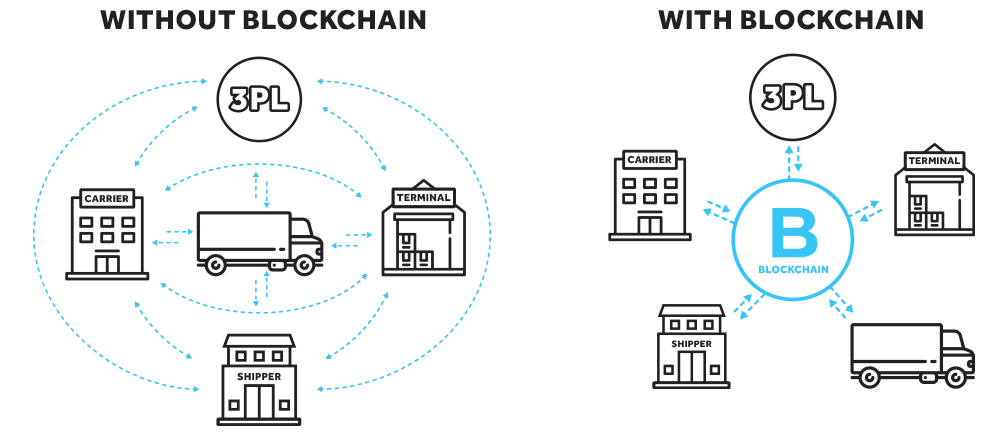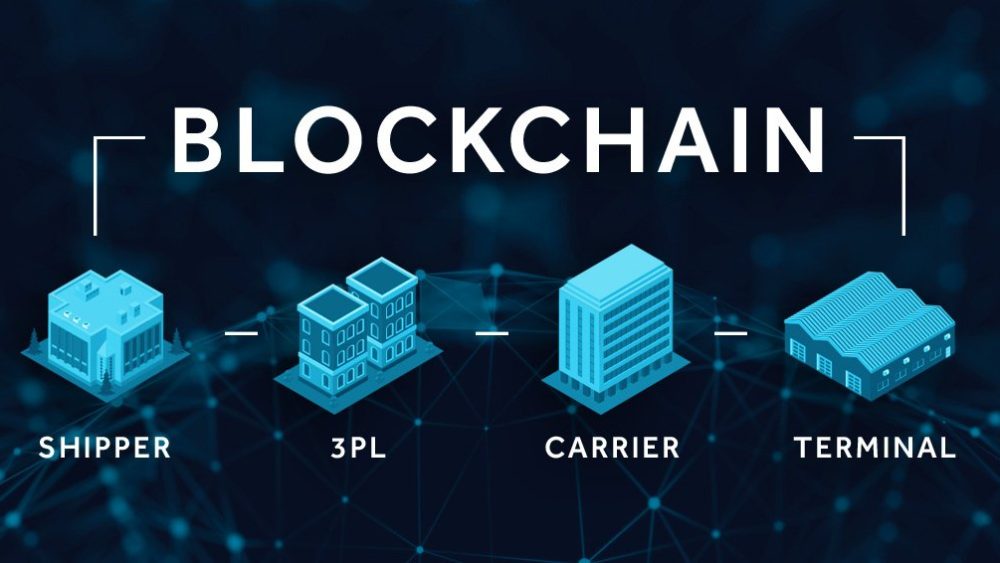Transportation Tech talk is buzzing about “blockchain” right now. In the past year other technologies such as the Internet of Things (IoT), 3D printing, drones and autonomous trucks have consumed the chattersphere. However, no technology has the potential to disrupt the transportation industry quite like blockchain. So, what exactly is blockchain, and what are the likely impacts on the trucking industry?
What is Blockchain Technology?
According to Don & Alex Tapscott, authors of Blockchain Revolution, “The blockchain is an incorruptible digital ledger of economic transactions that can be programmed to record not just financial transactions but virtually everything of value.”
Presently, technology providers use EDI and API technologies to help databases communicate with one another, ensuring that each database is current or synchronized. In today’s framework, data leapfrogs from one database to another, meaning changes and/or errors within the data can be introduced along the way. Using blockchain there is a centralized “database” safeguarding and tracking the history of each data segment. For example, let’s look at a shipment’s scheduled appointment time. On the database where the user created the data, the appointments scheduled time reflects the local timezone; Pacific Time. As that appointment’s data travels across systems, being mapped and remapped, zipped or encrypted, the time zone context can get dropped. Using a centralized blockchain there is no need for each system to pass the data. Each system just calls a blockchain for the shipments scheduled appointment time when it needs it, protecting the timezone context.
The beauty of blockchain is multifold: not only is data integrity insured, but no one owns blockchain; it is a computer code and a set of digital algorithms anyone can use. There could be transaction fees for using applications in a blockchain network, however.
An example of blockchain in transportation would be a completely digital contract or register: a smart contract or a smart register. For instance, each trucking company’s DOT Safety Rating could be a kept using a “Safety Rating Blockchain.” All parties (DOT, Shippers, 3PLs, Carriers, etc.) would be able to securely access a real-time, single source ledger. Other legacy systems can provide this same type of functionality, but there is a risk of fraud or data entry errors. A blockchain for safety ratings would deliver complete transparency and fairness, providing visibility of “who, when, and why” updated the carrier’s safety rating last.

Potential Benefits of Blockchain Technology For Trucking
- Supply Chain Partner Performance Analytics
Parties throughout the supply chain framework can access solid and trustworthy evidence of past performance by important metrics. For example, a shipper can view a carrier’s on time service score.
- Vehicle History Records
Access a detailed record of all vehicle repairs and/or relevant vehicle data. The vehicle history stays with the equipment as it changes hands from one owner to the next and can be accessed by anyone. This would eliminate the need for a Carfax or other similar document when selling a used truck; the buyer can simply access the vehicle history through the blockchain.
- Quality Assurance
Every party involved in a freight transaction has access to its freight data – or data breadcrumb. Photos, pick-up conditions, interline handoffs, delivery driver, etc. This allows all parties to accurately and easily pinpoint when the freight was damaged during a claim and support their position with trusted data.
- Compliance
With the mandate on ELDs, blockchain technology is a natural fit. ELDs can send a detailed stream of data to the parties with blockchain access in real-time. Using this data in conjunction with traffic, weather etc. can improve routing and delivery times.
- Volume Monitoring
All carriers know capacity changes throughout the day, no matter how much planning is involved. Blockchain technology will provide access to the supply chain where carriers can take advantage of changes in supply and demand live.
- Invoicing and Pricing
All financial transaction data is secure when using blockchain technology. It is also easily accessible by those with credentials. Access to this data can lead to faster payments, quick dispute resolution and overall better transparency with supply chain partners.
- Fraud Detection
Since all transactions are visible to the supply chain partners the ability for fraud is mitigated, also eliminating double brokering.
- Theft Prevention
Blockchain technology contains rules and specific information that can include picture IDs or rules specific to the delivery of freight. These rules cannot be changed and therefore increase the security of freight and reduce the risk of theft.
What’s Next
Blockchain technology in transportation is new territory yet to be explored. The most well-known model of blockchain technology currently in use is Bitcoin, a digital crypto-currency. The technology for trucking would most likely be developed in a different manner and probably rely on much stricter security standards and-or rules/credentials.
In late August of 2017, the Blockchain in Trucking Alliance (BITA) launched with 150 or so member organizations — including transportation management companies, brokers, carriers, shippers and technology vendors. BITA’s stated goal is to create standards and educate industry stakeholders about the promise of Blockchain.
At this point, we are probably a year or so away from this technology moving into the mainstream of trucking and transportation. However, carriers should be asking their Transportation Management System (TMS) partner if they have a plan to integrate blockchain technology in the near future. It is clear to those in the carrier technology sector that blockchain is on the horizon and shippers will be asking carriers to implement it sooner rather than later.
At Roadvision our commitment to innovation continues as we are preparing ourselves to be the premier provider of blockchain technology in the transportation industry. We are dedicated to helping our carrier partners access leading technologies that enable them to win in today’s digital economy. If we can help your trucking company with any transportation management technologies contact us today. We would love to hear from you.




Comments are closed.